Beyond reconciliation – a virtual walk through different faiths
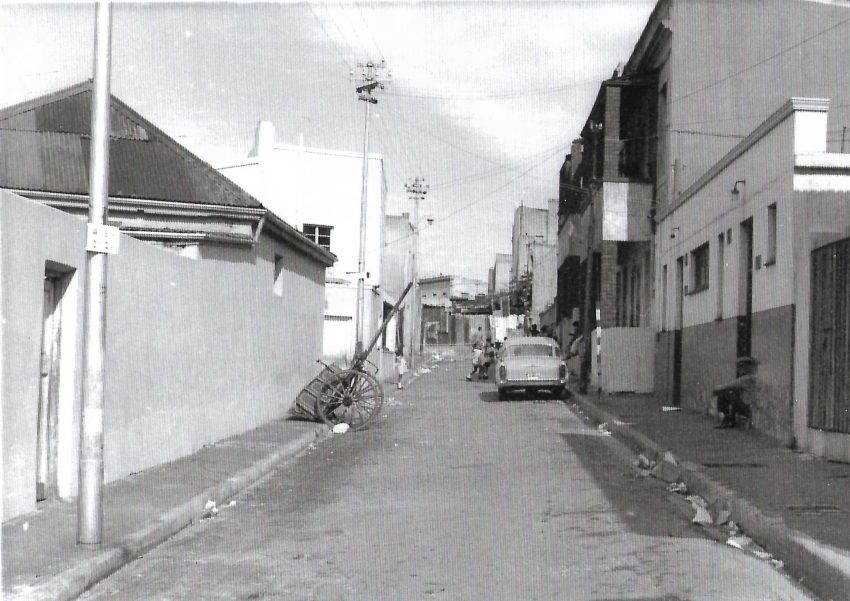
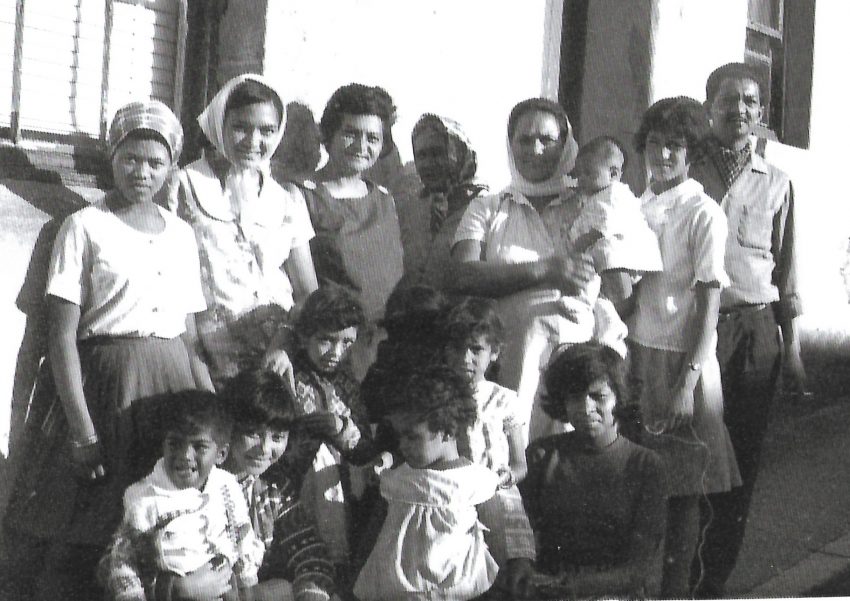
At the start of this week, I was invited to participate in this online event by Nic Paton, grandson of Alan Paton, author of Cry The Beloved Country. Thank you, Nic! The event was organised by the District Six Reconciliation Day Interfaith Walk. It was a healing and uplifting hour and a half and it has inspired me to tell the following story. The event began with the Call to Prayer from the Al-Azhar Mosque – a prayer that I heard every day in 1965 when I lived in District Six. This story is recounted in my memoir When I Was Bad before the destruction of District Six by the apartheid regime.
It is woven into my novel The Love and Wisdom Crimes in which the protagonist, Jane, revisits the empty space that is all that remains of a vanished community and life. Reconciliation Day in South Africa on 16th December each year celebrates the end of apartheid and calls for reconciliation between racial groups and different faiths. District Six was a place of social, religious and racial cohesion which is why apartheid sought to wipe it out but it also explains how and why my story, my connections with Islam, Judaism, Christianity and communism and my journey to Zambia began. Taking part in this virtual walk made me realise how interconnected and important these faiths are for me and how they have walked with me all through my life to this moment. The virtual walk took me to Lilliesleaf, Rivonia. Later in my life I was privileged to meet two of the freedom fighters captured there – Alfred Sisulu and Dennis Goldberg. The walk also went back to Mahatma Gandhi’s project in Natal and reminded me of my connections with the resistance to apartheid in Natal.
When I Was Bad – a memoir
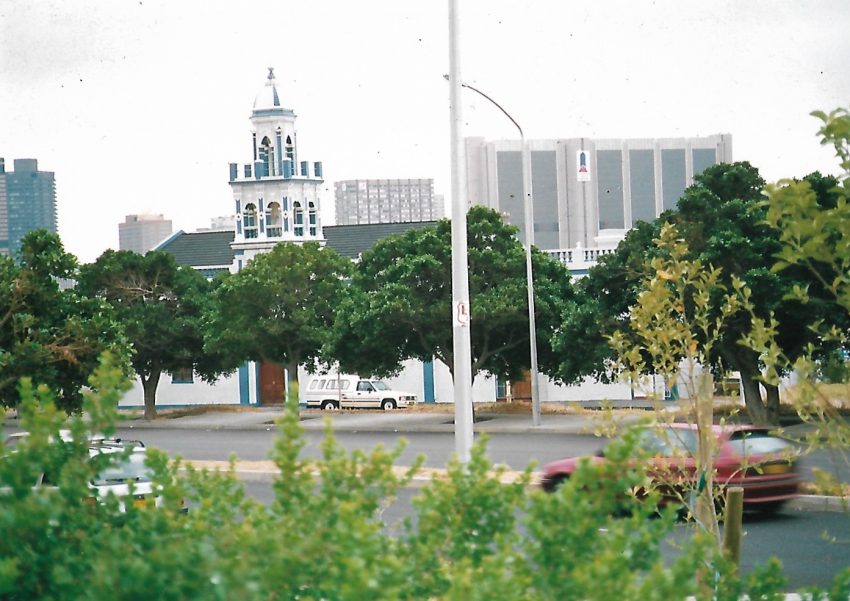
When I was behaving badly it was a very bad time in Southern African history. Ian Smith was about to declare UDI in Rhodesia and the liberation wars were about to explode. South Africa was a police state, without a free press and those like Nelson Mandela who opposed its regime were in prison or exile. Among my school and university friends and my heroes were Jewish or radical Christians or Marxists opposed to apartheid. When I lived in District Six I made Muslim friends. In 1966 I became a criminal because I was pregnant with a mixed-race child and so had to run away to England. In London, it was the left-wing Jewish anti-apartheid community who helped and befriended me and with whose causes I identified with. In 1968 I married Mike, who at that time was somewhat of a rebel against his observant Jewish parents and who I persuaded to take part in anti-Vietnam War demonstrations while I was studying at the London School of Economics.
Walking from District Six to Lake Kariba in Zambia in 1972
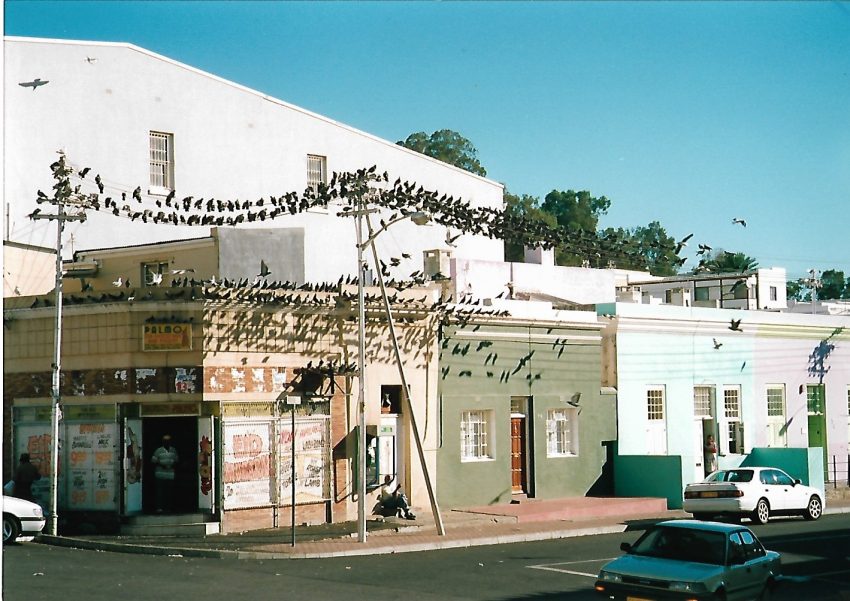
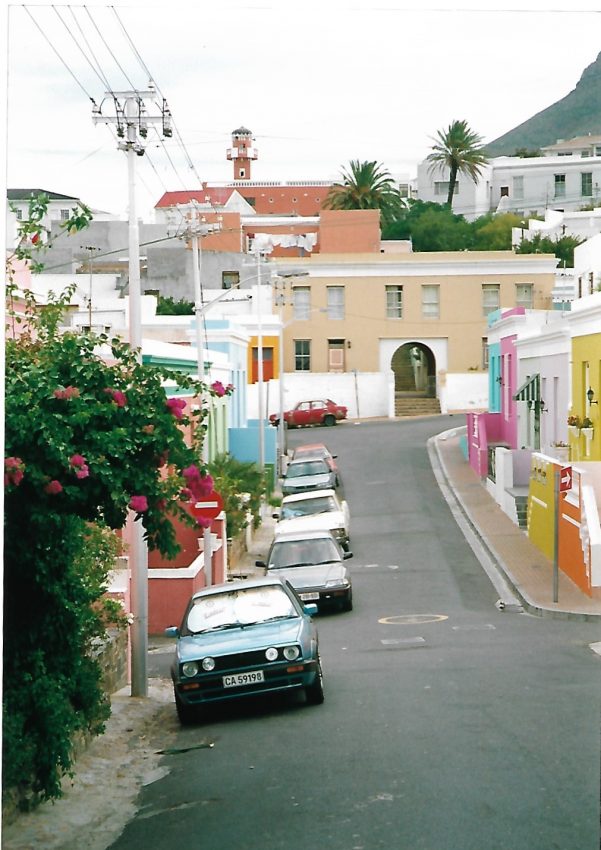
Yes – it’s a stretch too far and Mike and I didn’t walk there, but there still is a direct connection to my District Six experience. Mike had just completed his medical training and we were broke. Other newly qualified doctors whizzed off to Canada for 18 months of mostly snow and ice to return after saving most of a year’s salary for a deposit on a house. I was desperately homesick for Africa and longing to see my family after 6 years away so I said please – can we go to Africa? – to my surprise, Mike agreed. We both wanted to work – I was an art teacher while Mike’s work as a doctor was more in demand, but that was not our biggest problem. It wasn’t safe to go back to South Africa and I couldn’t take my children to face the racism in Rhodesia even though we would all go there to visit my family. Mike was offered an 18-month contract on the North Bank power station construction site at Kariba Dam, Zambia, and I was promised work at their school. Rhodesia and my family were across the dam wall border and we would be returning to London in 1973.
Art, medicine, religion and moving to Lusaka 1973
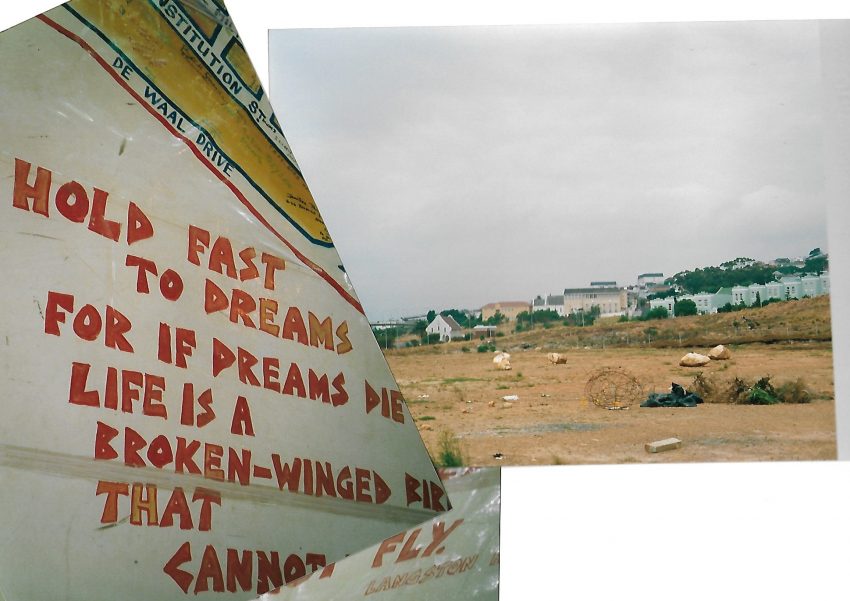
The truth is that it was my politics and my experiences from childhood to District Six that shaped the reasons my family and I ended up living in Zambia and feeling so committed to it. Life and history are too often seen and described only from a male perspective and the equally important role of women goes unacknowledged by their families, society and even themselves. No person should be silenced and go unheard because that is a denial of the truth. We didn’t return to London in 1973 because the British firm building the power station embezzled funds destined for Zambia then went bankrupt, leaving us penniless. I was able to tell Mike to go see if the Anglo-American Corporation needed a doctor and they gave him a job that hadn’t yet been advertised. Mike’s medical service to Zambia and his work against HIV/AIDS is well known. The role he played in supporting and sustaining the Jewish community of Lusaka is also recognised and recorded in both the Gateway Museum in Livingstone and in Hugh Macmillan and Frank Shapiro’s important Jewish history Zion in Africa. The extraordinary contribution of Jews to Zambia continues to this day and in this connection, I think of my friend Cynthia Zukas of the Lechwe Trust who I had worked with for so many years at Mpapa Gallery. As I listened to Ivor Joffe, the Cantor on the Beyond Reconciliation Walk, I felt once again the privilege and the pleasure I had in participating in the life of the Zambian Jewish community. It was the background to my own work in supporting the visual arts, creativity and human rights.
War and living in Zambia 1972 – 1994
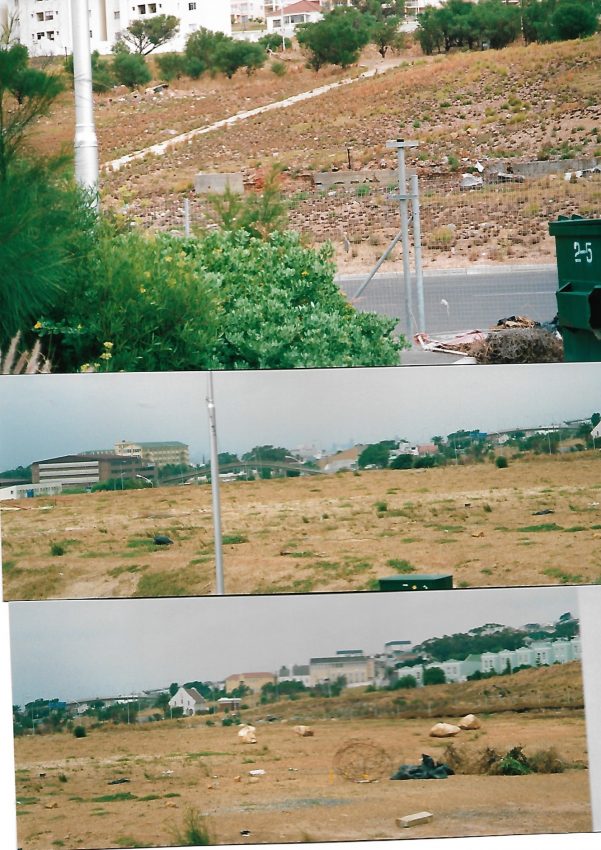
My novels The Shaping of Water and The Tin Heart Gold Mine both deal with the impact of the Cold War and the wars of liberation on the whole region of Southern Africa and tell stories that are still not taught in history. Zambia suffered during these times and though life was difficult I remained relatively protected and privileged. There were years when we expected that we might have to leave Zambia abruptly and only Britain would be a safe place for my children. The racism of apartheid that crushed and destroyed District Six was part of a conflagration that engulfed the entire region and that only began to end after Nelson Mandela became the South African president. I had lived briefly in District Six, but life has given me some understanding of the bitterness and tragedy of the forced exile that its community endured. Happy as I am today in my new home there are times when I long to return to my African roots. Perhaps someday District Six will again be the community described by the Imam – Sheigh Ismail Keraan – a home for all races, all religions and all genders without rupture or dispossession. That is my prayer too. Amen. So be it.
Returning to District Six in 2000
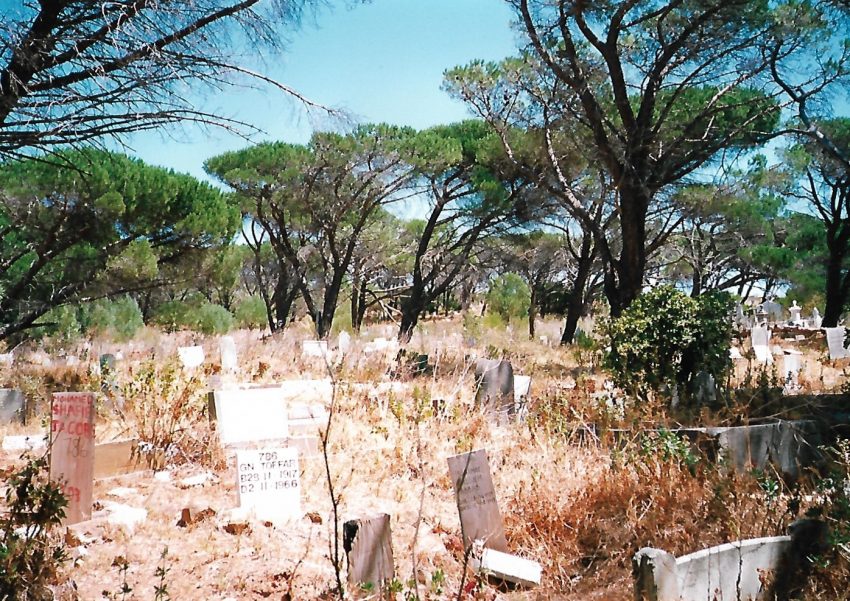
In 2000 I returned to Cape Town to grieve at two graveyards. One is the graveyard that is still today District Six and the other is the cemetery where my daughter’s father is buried. I stayed above Bo Kaap, the place where he had lived, and there I was shown great kindness by Shireen Sarkadien and was also able to visit the District Six Museum. Cape Town is perhaps the most beautiful city in the whole world and South Africa – the Rainbow Nation – is a place of hope. Here is a link to Nic Paton’s music and video inspired by Rumi – The One – that concluded the Beyond Reconciliation Virtual Walk.
My next blog post will be in the New Year 2021 and probably about my new book When We Were Wicked. Until then I wish you Seasons Greetings and Peace.
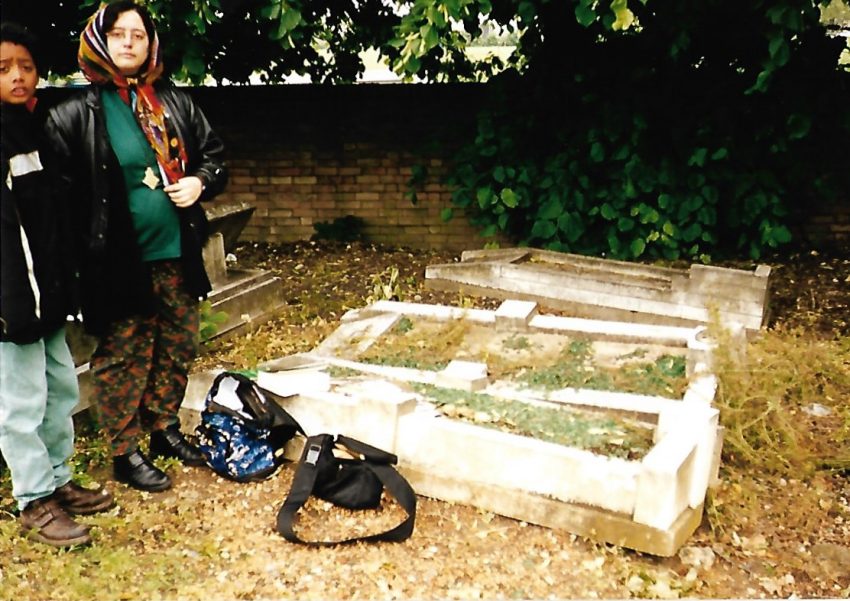
15 Comments on “From 1966 District Six in Cape Town to Zambia and back – the start of this writer’s journey”
What a story Ruth. You put so many of us to shame – I know how difficult normal human relations were across the racial divide when we were young.
Hi Pam. thanks! Yes – we had so much to learn but I think many of our generation were willing – this much further on I do have a quiet laugh at myself – I was so ignorant – but also so trusting and in the end so very lucky and painful though some experiences were – and frightening – I wouldn’t want to change anything much now!
I enjoyed that – I saw District 6 from the outside in 1963 but regret I didn’t get inside – by the time I stayed there in Cowley House in 1972 it was all gone except for churches and mosques. Sad!
Hi Hugh, glad you enjoyed that post – sometimes when life uproots you and displaces you it is hard to see any direction or purpose in one’s life and choices – one just feels tossed around by fate. Writing this post gave me a sense of continuity and hope – of our shared humanity across countries and places.
How lovely that you experienced the breathtaking beauty and rhythm of Zambia and the song of the Zambezi. For me as a Zambian it is my paradise.
Hi Margaret, not only is Zambia a very lovely place physically but I have always get that the people of Zambia are remarkable – generous and open and inventive and creative. It does feel like home to me even though I love my home here too. Oh – and the Zambezi! What a river!
Thank you Ruth for this fascinating background, and for your connecting me with District 6 more closely through your own story. Please keep in contact with the current-day community. Best wishes for 2021.
Hi Nic, I am very grateful for the link you gave me to this event. There are two things – I’ve always felt that I was someone who was privileged and so feel humbled when I write about District Six. There is so much that needs to be forgiven that I wonder if that is even possible. I will do my best to keep in touch with the community there. The other thing is the importance of sharing and supporting other creative people and there work which is sometimes impossible with all the pressures on us all the time.
Ruth – this was not bad – nor was it the innocence of youth. The policy of the South African government was bad and unacceptable for some. Especially if we were not South African nationals. I spent 1960 as a first year medical student in UCT, was 17 years old and picked a Cape Malay girl as my lab partner. Went to parties in District 6 with my Lusaka mates who also didn’t accept the rules. Somehow we never got arrested. Towards the end of third term, I was strongly advised to change my lab partner or I should not expect to pass some exams. Went home for the term break and convinced my parents to let me go on a Jewish student NUSAS trip to Israel during the year end vacation. Saw it as a one-way ticket and never bothered going back. I couldn’t study medicine in Israel – did political science but ended up with a doctorate in Public Health from the Johns Hopkins University and am not complaining. So we were not bad – we just showed we had the guts to stick to our principles installed by our parents. I did go back to South Africa as an ILO consultant on social health insurance -and could see that it would not happen so quickly – social justice was still not strong enough.
Dear Aviva, I intended my title of ‘When I was Bad’ as an ironic statement about the ‘laws’ – ‘the social conventions’ – and the fact that apartheid was bad but way back them so many young people – then as now – were idealists as so clearly you were! Your story makes me feel so envious of you growing up in Zambia with like-minded friends and companions – I had a very lonely youth on an isolated farm way out in the bush. I think you were amazing as a student but there were many students then who were heroes to me like Morris Szeftel. What you have done with your life and what you have given to the world is also amazing.
Hi Ruth, wonderful that you were invited to participate in this Beyond Reconciliation virtual walk in the District Six area. Wonderfull aiso for you to feel that the pieces of the puzzle of your life have been steadily anchored in the reality of your being.
Hi Geraldine – yes indeed – I sometimes feel that so much in my life seemed broken and disjointed and this Virtual Walk gave me a perspective that was about connections – when you lose people through deaths or differences or displacements – it becomes necessary to live within oneself and in one’s own truths and meanings and if they still make valid shared connections – perhaps one isn’t all wrong and misguided?
Thank you Ruth a fascinating story I have never been to Africa, except Egypt, but have read a lot about it. Great to hear the first hand stories of someone who knows it so well.
Hi Anne – I’m glad you liked the story – I love telling stories about Africa but also hearing and reading other people’s stories and experiences too. Every day there’s something new to discover and another realisation of how little I know!
Hi Ruth
Do you know who took the photo titled District Six 1965? Many thanks